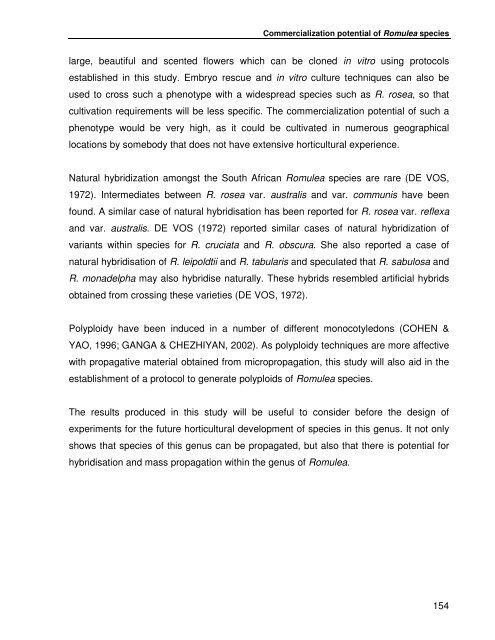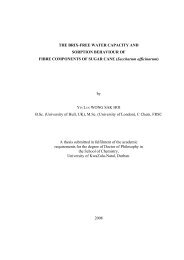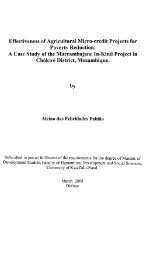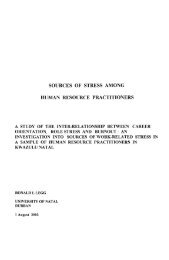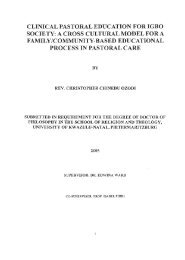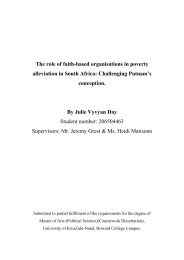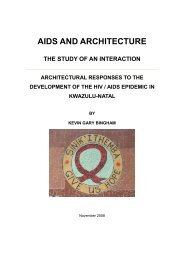View/Open - ResearchSpace - University of KwaZulu-Natal
View/Open - ResearchSpace - University of KwaZulu-Natal
View/Open - ResearchSpace - University of KwaZulu-Natal
Create successful ePaper yourself
Turn your PDF publications into a flip-book with our unique Google optimized e-Paper software.
Commercialization potential <strong>of</strong> Romulea species<br />
large, beautiful and scented flowers which can be cloned in vitro using protocols<br />
established in this study. Embryo rescue and in vitro culture techniques can also be<br />
used to cross such a phenotype with a widespread species such as R. rosea, so that<br />
cultivation requirements will be less specific. The commercialization potential <strong>of</strong> such a<br />
phenotype would be very high, as it could be cultivated in numerous geographical<br />
locations by somebody that does not have extensive horticultural experience.<br />
Natural hybridization amongst the South African Romulea species are rare (DE VOS,<br />
1972). Intermediates between R. rosea var. australis and var. communis have been<br />
found. A similar case <strong>of</strong> natural hybridisation has been reported for R. rosea var. reflexa<br />
and var. australis. DE VOS (1972) reported similar cases <strong>of</strong> natural hybridization <strong>of</strong><br />
variants within species for R. cruciata and R. obscura. She also reported a case <strong>of</strong><br />
natural hybridisation <strong>of</strong> R. leipoldtii and R. tabularis and speculated that R. sabulosa and<br />
R. monadelpha may also hybridise naturally. These hybrids resembled artificial hybrids<br />
obtained from crossing these varieties (DE VOS, 1972).<br />
Polyploidy have been induced in a number <strong>of</strong> different monocotyledons (COHEN &<br />
YAO, 1996; GANGA & CHEZHIYAN, 2002). As polyploidy techniques are more affective<br />
with propagative material obtained from micropropagation, this study will also aid in the<br />
establishment <strong>of</strong> a protocol to generate polyploids <strong>of</strong> Romulea species.<br />
The results produced in this study will be useful to consider before the design <strong>of</strong><br />
experiments for the future horticultural development <strong>of</strong> species in this genus. It not only<br />
shows that species <strong>of</strong> this genus can be propagated, but also that there is potential for<br />
hybridisation and mass propagation within the genus <strong>of</strong> Romulea.<br />
154


